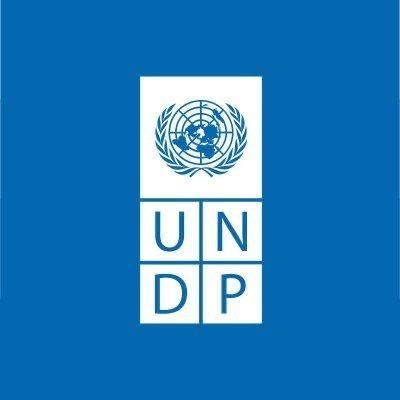Intern, Special Procedures Branch
Internship
1 month ago
Employment Information
Geneva, Switzerland
This assignment shall be offered for an initial period of three (3) months, renewable for a combined period of six (6) months, upon further approval by the supervisor.
The Office of the United Nations (UN) High Commissioner for Human Rights (OHCHR) is the Secretariat department responsible for strengthening international human rights mechanisms; enhancing equality and countering discrimination; combating impunity and strengthening accountability and the rule of law; integrating human rights in development and in the economic sphere; widening the democratic space; and early warning and protection of human rights in situations of conflict, violence and insecurity. This announcement broadcasts international internship assignments with the Special Procedures Branch (SPB). Created in 2006 through the United Nations General Assembly Resolution 60/251, which established the Human Rights Council (HRC), the Special Procedures Branch is responsible for thematic research and policy development, human rights mainstreaming across all work areas of the United Nations system, development of tools and learning packages and provision of expertise to a variety of stakeholders on a wide range of human rights themes. The Branch lends support to independent human rights experts – Special Rapporteurs, Working Groups or Independent Experts, together referred to as mandate holders, appointed by the Human Rights Council with mandates to report and advise on human rights from a thematic perspective. The Branch comprises six entities, specifically: i) Groups and Accountability Section, which provides support to a group of independent human rights experts (also referred to as mandate holders) appointed by the United Human Rights Council to report and advise on thematic human rights issues which include: albinism, minorities, migrants, indigenous peoples, internally displaced persons, persons with disabilities, older persons, slavery, sexual orientation and gender identity, sale of children and mercenarism; ii) the Sustainable Human Development Section, which provides support to nine special procedure mandate holders, namely those on business and human rights, the environment, food, foreign debt, housing, poverty, toxics, water and sanitation, and climate change; iii) the Protection, Religion, Accountability and Human Security Section, which provides support to a group of independent human rights experts (also referred to as mandate holders) appointed by the United Nations Human Rights Council to report and advise on thematic human rights issues such as arbitrary detention, enforced disappearances, countering terrorism, religion or belief, privacy, torture, summary executions and unilateral coercive measures; iv) the Justice, Protection and Social Rights Unit provides substantive, logistic and administrative support to a number of UN Special Procedures established by the Human Rights Council such as the work of the Special Rapporteurs on transitional justice, freedom of opinion or expression, human rights defenders, independence of judges and lawyers, right to education, right to health, cultural rights, and leprosy; v) the Equality, Non-Discrimination and Participation Unit, which provides support to 8 special procedures mandates, namely those on violence against women, discrimination against women, trafficking in persons, racism, freedom of assembly and association, international order and international solidarity, right to development; and vi) the Coordination Information and Communications Unit, which supports the Special Procedures system as a whole, in particular its Coordination Committee, facilitates and ensures coordination and coherence in the implementation of the working methods of SP, the Manual of Operations and the Code of Conduct, supports the communications process of SP, coordinates the SP engagement with the intergovernmental bodies as well as their increased engagement with the UN system at headquarters and in the field, and enhances the visibility and impact of the work of SP. For more information on the Special Procedures Branch and its work, including an overview of the different themes covered, go to: https://www.ohchr.org/en/special-procedures-human-rights-council Based in Geneva, Switzerland, under the overall direction of the Chief of Branch and the guidance of the respective Chief of Section, the intern reports to the Human Rights Officer in the assigned work unit. This assignment shall be offered for an initial period of three (3) months, renewable for a combined period of six (6) months, upon further approval by the supervisor. The intern shall support OHCHR in fulfilling its mission to work for the protection of all human rights for all people; to help empower people to realize their rights; and to assist those responsible for upholding such rights in ensuring that they are implemented. Daily responsibilities of the Special Procedures human rights intern will depend on activities carried-out within the assigned work unit and the individual's background. Duties may include but are not limited to contributing to thematic reports or studies, including research of related literature, international law and jurisprudence and, in particular, the intern may: assist in the preparation of official country visits, in particular through the drafting of country specific human rights assessments; analyze human rights issues contained in cases and complaints addressed to the mandate holders; draft letters on particular cases and complaints taken up by mandate holders, including summarizing the human rights violations alleged in the case and preparing a short legal analysis of these violations; collect information and conduct research for the preparation of briefing notes, statements and other documents; take notes of meetings with different stakeholders, in particular civil society representatives; attend sessions of the Human Rights Council (HRC) and assisting with the preparation of related activities and events; assist in the organization of meetings and seminars; and perform other related duties as requested by supervisor, as appropriate.
Language: English and French are the working languages of the United Nations Secretariat. For this internship fluency in English or French is required, knowledge of the other is an asset. Knowledge of another United Nations official language would be an advantage (i.e. Arabic, Chinese, Russian or Spanish). Education: To qualify for the United Nations Secretariat internship programme, applicants must, at the time of submission, be a graduate or enrolled, in a graduate school programme (i.e. Master's degree or equivalent degree, or higher) or, be a graduate or enrolled in the final academic year of a first-level university degree programme (i.e. Bachelor's degree or equivalent degree) preferably in the area of law, political science, international relations, social sciences or a related field, OR have graduated with a university degree as defined above AND, if selected, must commence the internship on the date specified in the Acceptance letter. APPLICANTS ARE NOT REQUIRED TO HAVE PROFESSIONAL WORK EXPERIENCE FOR PARTICIPATION IN THE PROGRAMME. Competencies PROFESSIONALISM: Shows pride in work and in achievements; Demonstrates professional competence and mastery of subject matter; Is conscientious and efficient in meeting commitments, observing deadlines and achieving results; Is motivated by professional rather than personal concerns; Shows persistence when faced with difficult problems or challenges; Remains calm in stressful situations. COMMUNICATION: Speaks and writes clearly and effectively; listens to others, correctly interprets messages from others and responds appropriately; asks questions to clarify, and exhibits interest in having two-way communication; tailors language, tone, style and format to match the audience; demonstrates openness in sharing information and keeping people informed. TEAMWORK: Works collaboratively with colleagues to achieve organizational goals; solicits input by genuinely valuing others' ideas and expertise; is willing to learn from others; places team agenda before personal agenda; supports and acts in accordance with final group decision, even when such decisions may not entirely reflect own position; shares credit for team accomplishments and accepts joint responsibility for team shortcomings. CLIENT ORIENTATION: Considers all those to whom services are provided to be "clients" and seeks to see things from clients' point of view; establishes and maintains productive partnerships with clients by gaining their trust and respect; identifies clients' needs and matches them to appropriate solutions; monitors ongoing developments inside and outside the clients' environment to keep informed and anticipate problems; keeps clients informed of progress or setbacks in projects; meets timeline for delivery of products or services to client.
Interns are not financially remunerated by the United Nations. Costs and arrangements for travel, visas, accommodation and living expenses are the responsibility of interns or their sponsoring institutions. Interns who are not citizens or permanent residents of the country where the internship is undertaken, may be required to obtain the appropriate visa and work/employment authorization. Successful candidates should discuss their specific visa requirements before accepting the internship offer.




